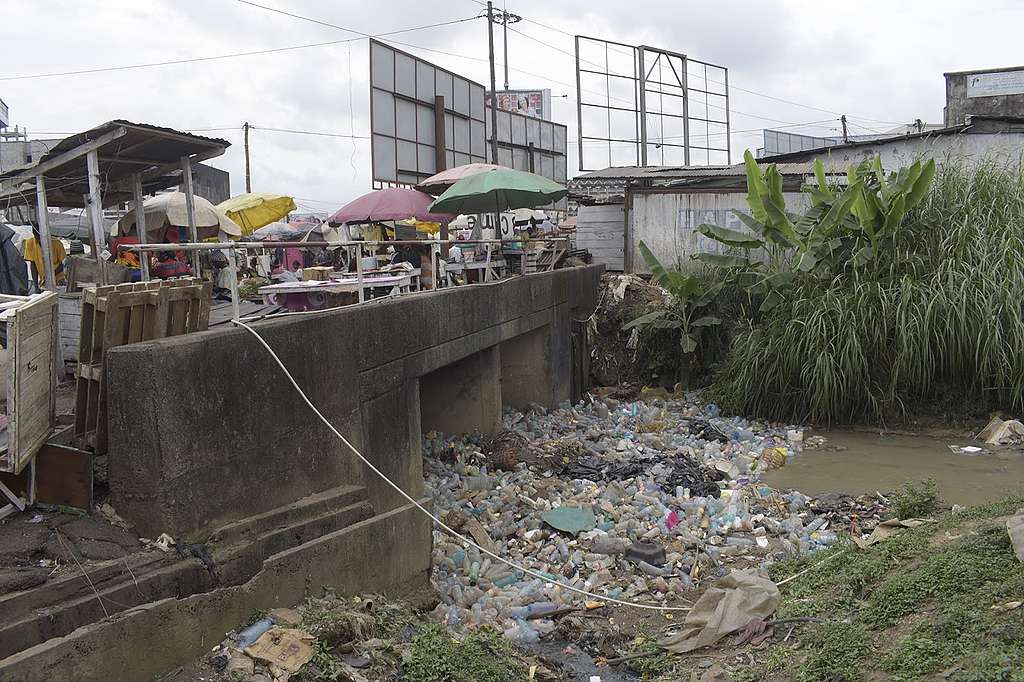The tendency to expect everything from the State, or to put everything on the back of the State without taking into account the duty of each of the other components of this same State, notably: respecting and implementing measures aimed at cleaning up enacted and implemented by the competent authorities in particular urban and rural areas, is the concrete proof of in distress patriotic impulse.
Everything that is produced, marketed, unpacked and consumed, has a final destination that will always depend on the importance each individual places on maintaining a healthy environment. Men attaches more importance to his diet rather than ensuring that what he does not consume, or that he finds undesirable, ends up exactly where it should. Throwing packaging or household waste anywhere has become a normal reflex that denotes the degree of lamentable consideration that a good segment of the population gives to the activity of garbage collectors. The purification of drains undertaken by urban communities, district municipalities, and sometimes in collaboration with certain public limited companies is a responsible act which will always lack consistency without permanent activism by local residents or populations belonging to these multiple administrative subdivisions. The populations must collaborate with the competent organizations in terms of sanitation in urban and rural areas because the clogging of the drains, for example, is a consequence of the incivility displayed by a disrespectful population; hence the need for repressive measures.
Also read : La symbolique d'un recasement temporaire et d'une indemnisation dans un climat de précarité ponctué par l'exercice torride de la loi.
The need to permanently purify unhealthy environments requires the involvement of all social strata. To demand a gesture from the government is to be aware of our own role in controlling and preserving a healthy environment. A project of community interest that is not accompanied by the commitment of each household in strict compliance with basic measures, can only contribute to further bogging down a situation whose harmful effects on the environment would be less or negligible. Everything suggests that the State in its various dismemberments is not serious enough. Decree No. 2008-0737-PM of April 23, 2008 laying down safety, hygiene and sanitation rules for construction exists, but people prefer to persevere in an fictitious ignorance sometimes supported by dishonest and conscious officials risks incurred by populations who choose to live in spaces where spontaneous constructions that promote promiscuity do not allow proper drainage of contaminated water, and even less proper management of household waste. But although they are harmful for Cameroonian society in particular, the proliferation of anarchic constructions highlights the inability of a certain class of the population to obtain a land title, or to respect the technical conditions necessary in order to building in a specific space. Those who are unable to meet all the technical requirements required for the construction of a quality dwelling, must at least benefit while waiting for the obtaining of a land title for those who do not yet have one, technical and financial support to enable them to have modest dwellings which follow a well-defined plan, and which allow good disposal of garbage, waste water, in addition to good air circulation. Without a concerted development policy that takes into account the difficulties of the lowest strata of society, insalubrity will continue to build its nests in all nooks and crannies of Cameroon. The low-rent housing built by the government will partially meet the demand of a category of individuals who cannot be classified among the most vulnerable. Additional categories must be created in concert with those who do not have the means to build, buy, or rent dwellings of such standing and who are obliged to go and settle in corners favourable to the development of a nauseating environment due to promiscuity, the absence of a preconceived construction plan and above all the non-compliance of installations with the requirements of a master development plan.
Sanitation of cities and countryside requires that each individual take responsibility. Elected officials must help people live decently despite the fact that some of them live in precarious conditions. To live decently is not only to have enough to meet one's needs, but above all to do everything possible to live in a pleasant environment.
English|French
